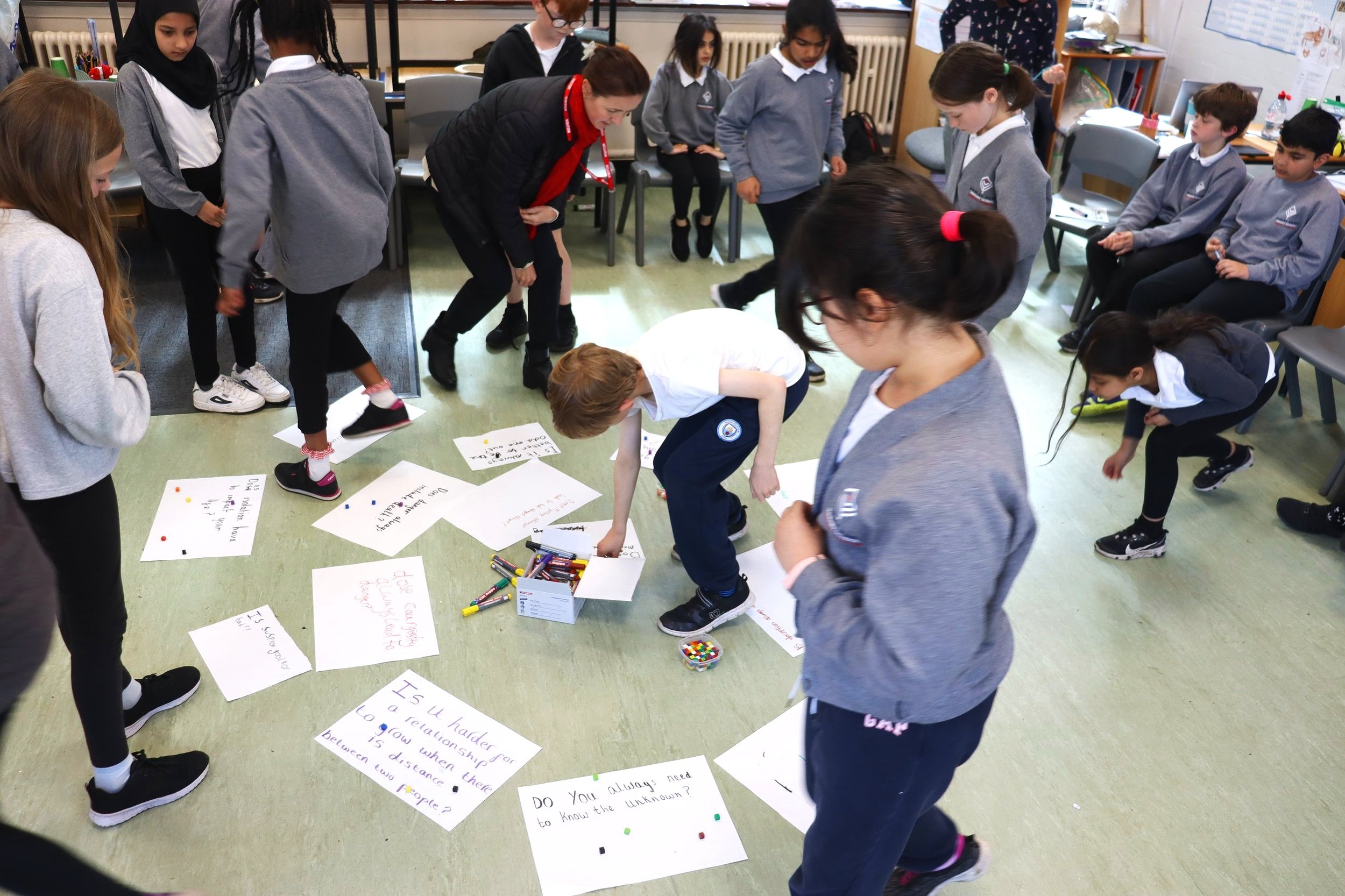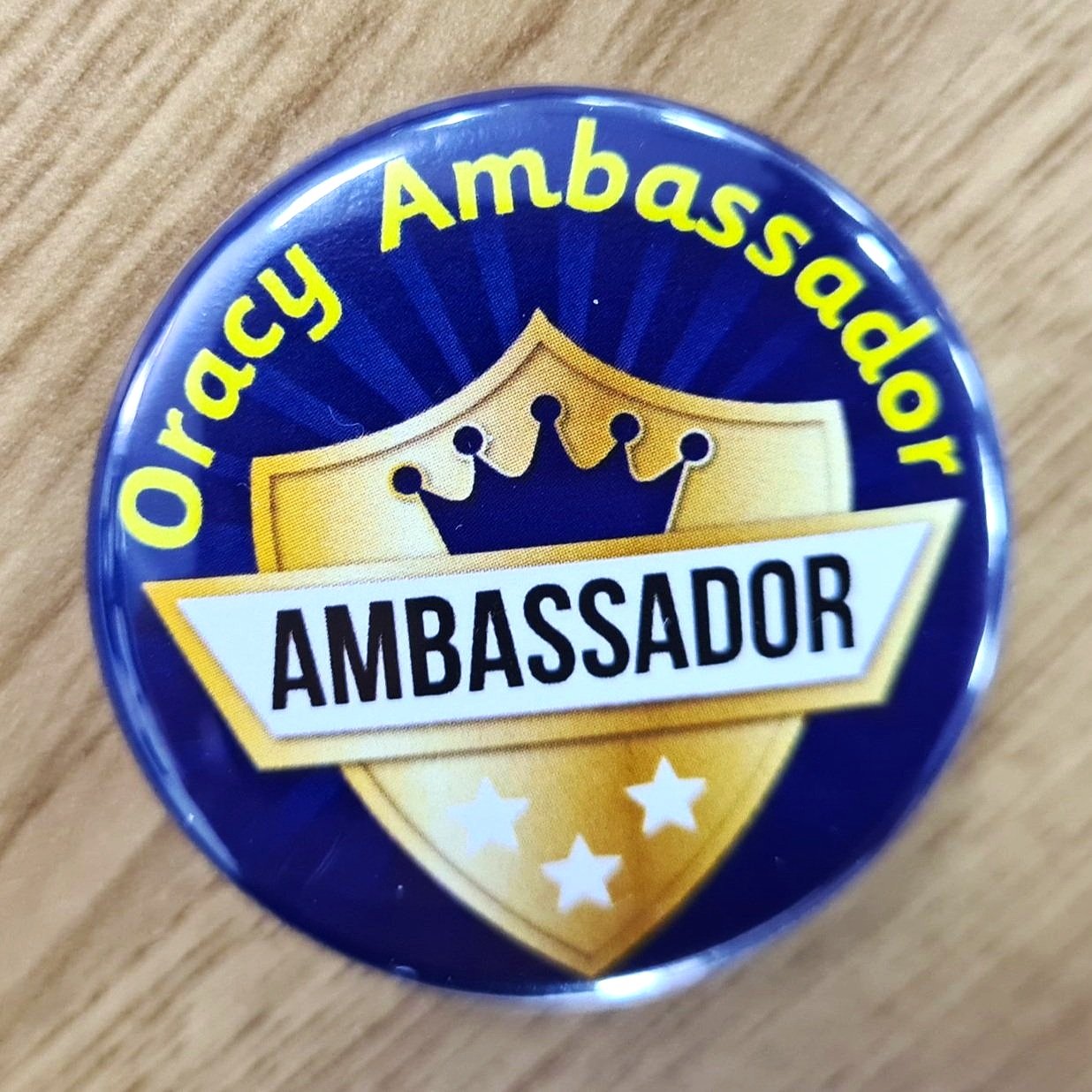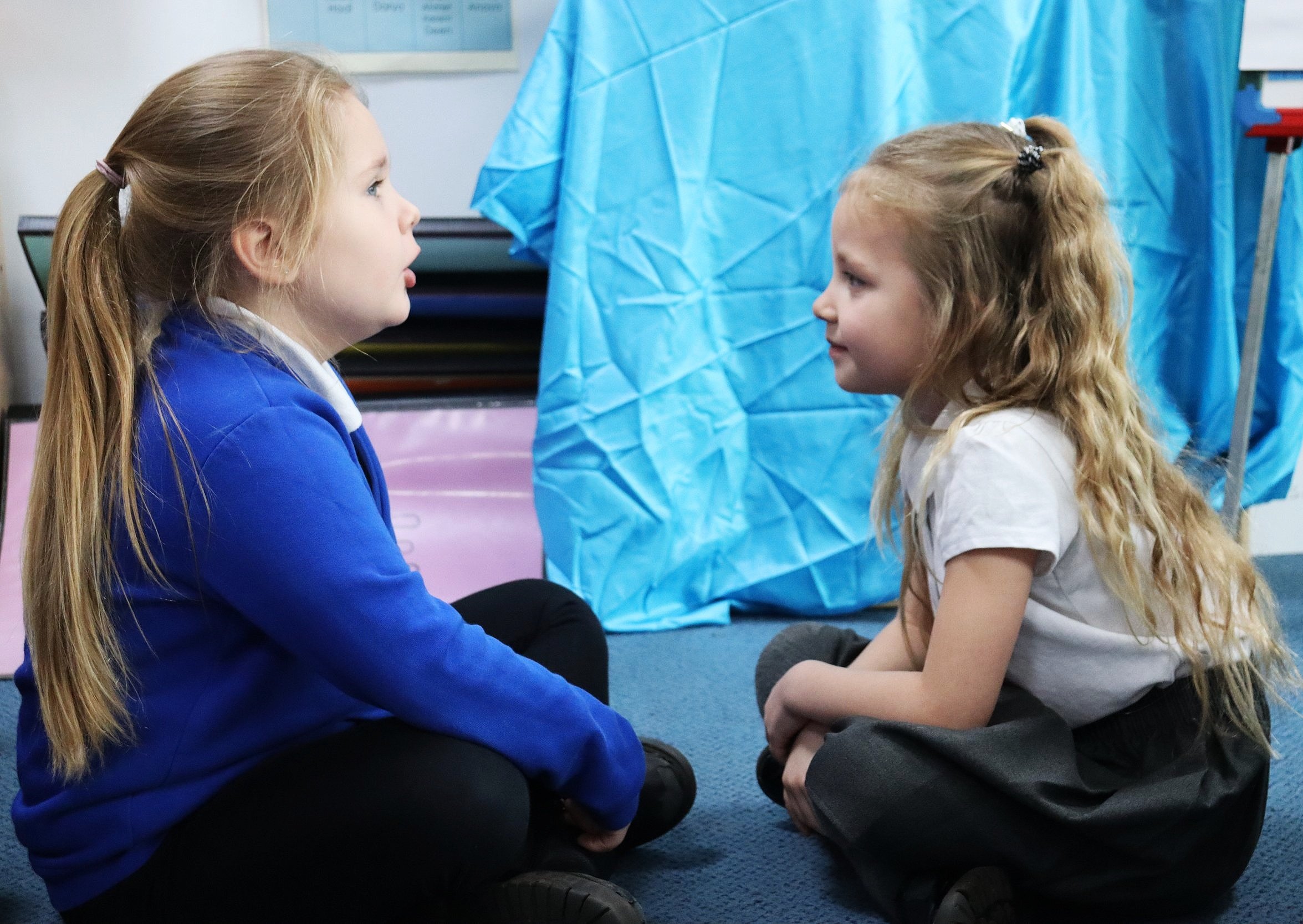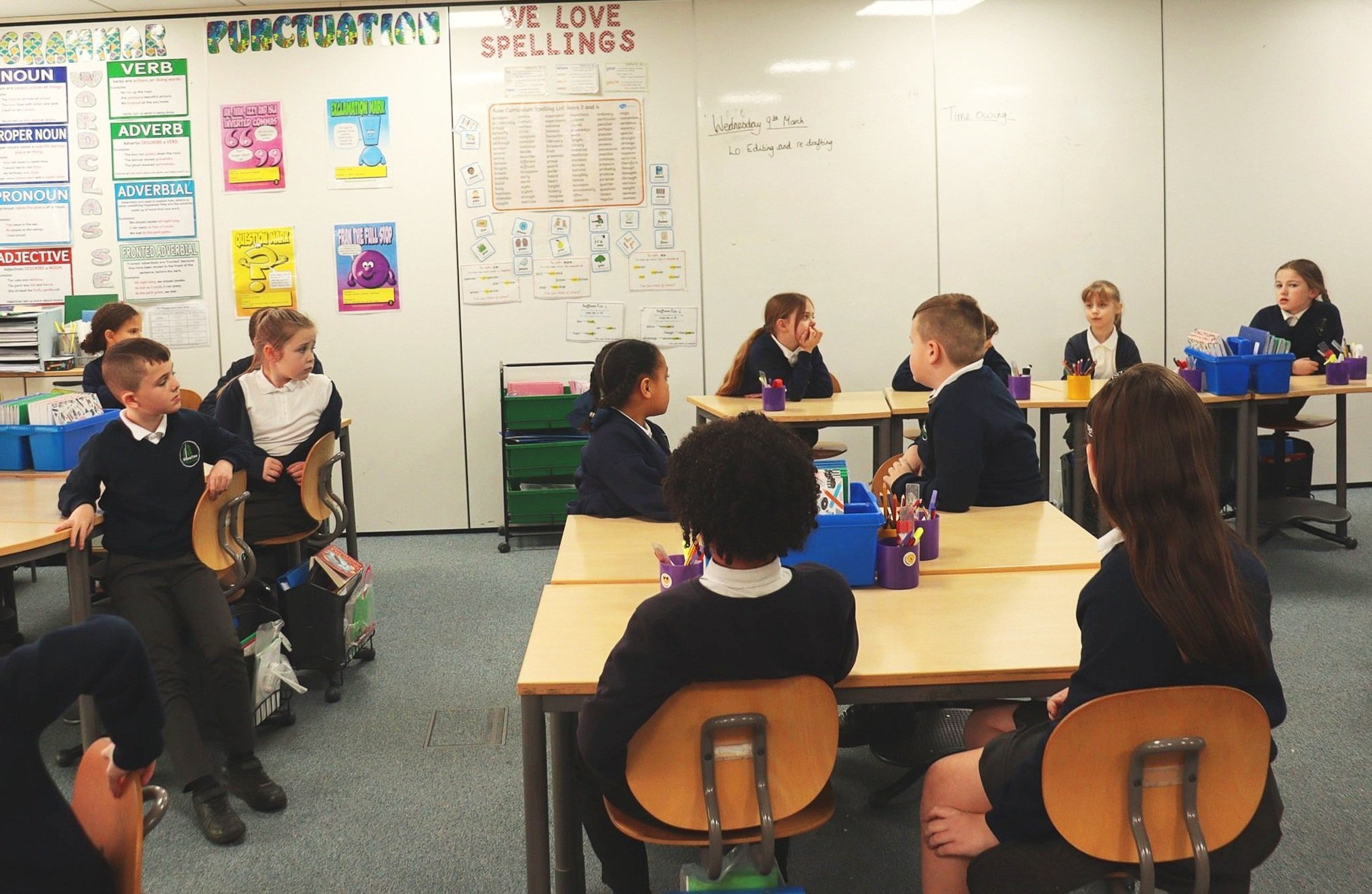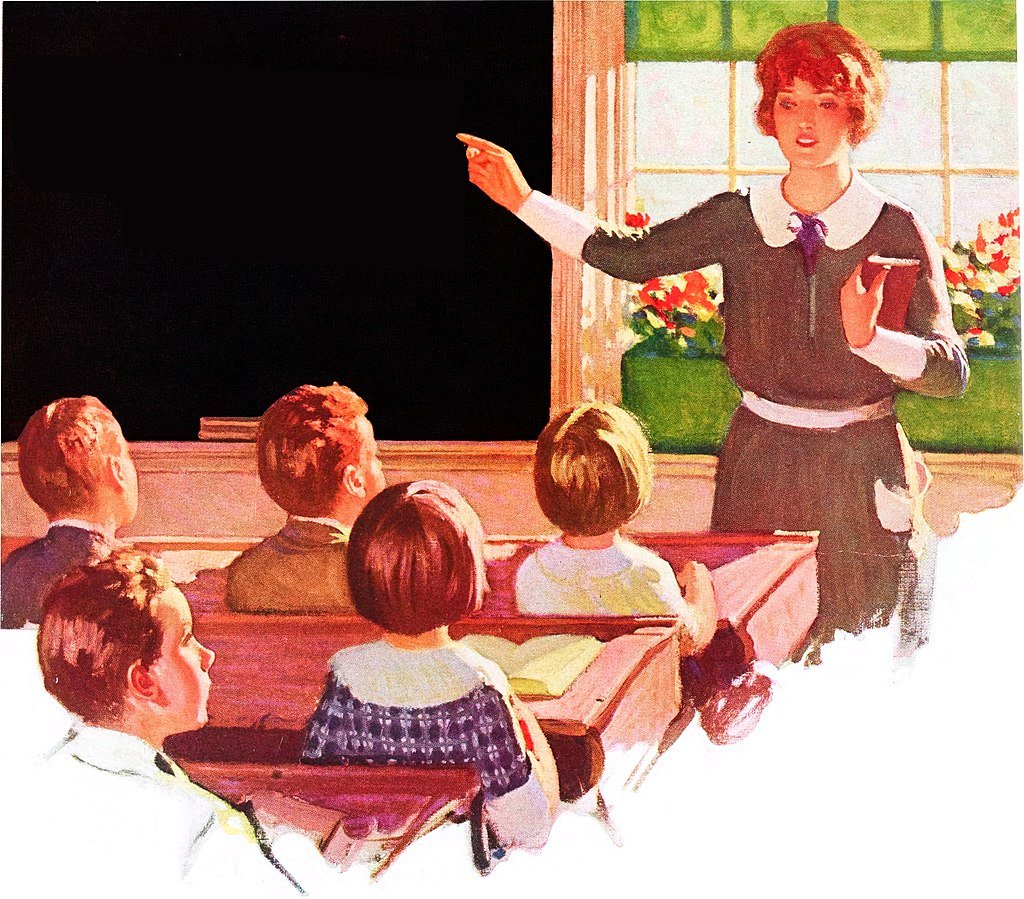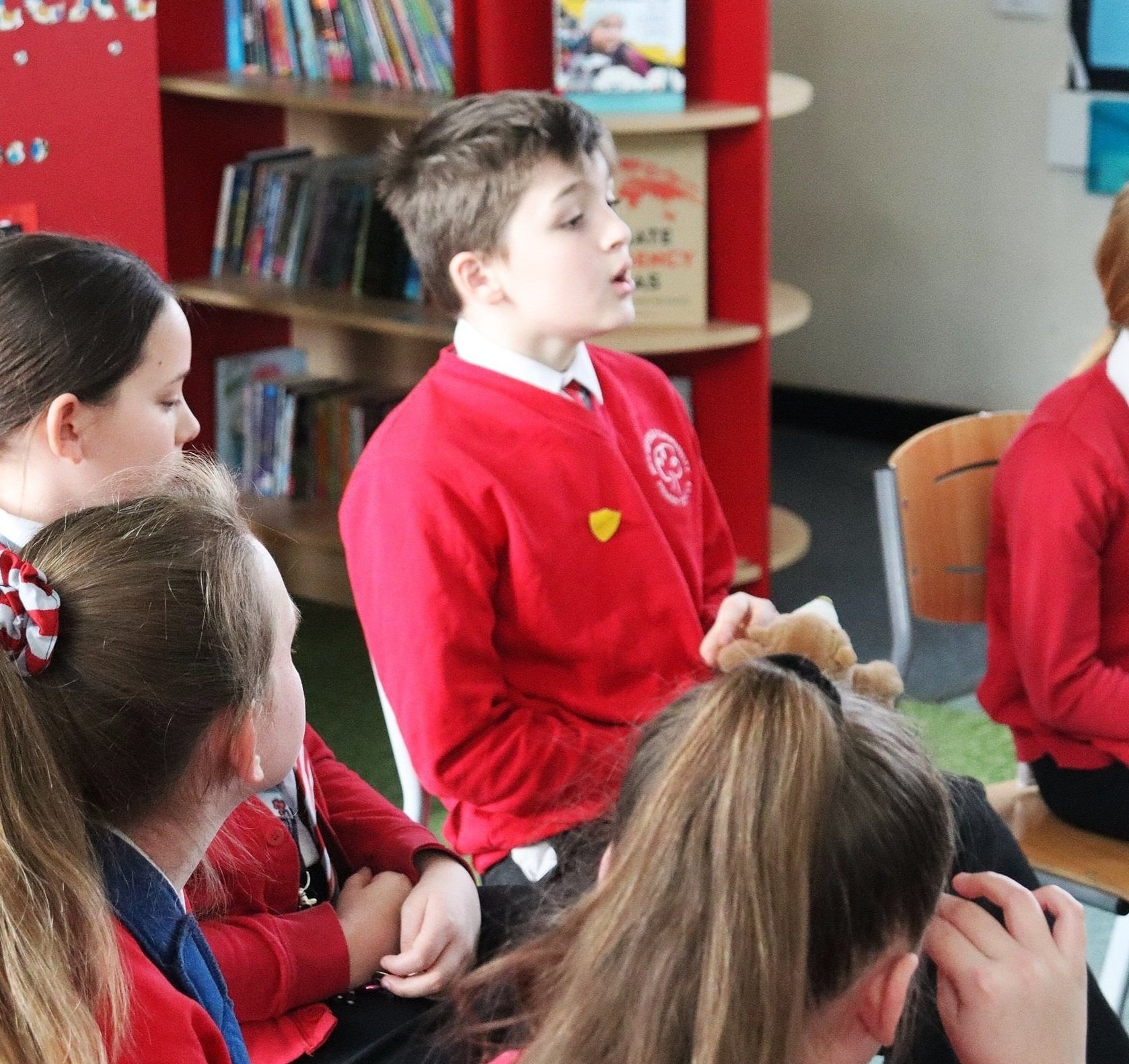
P4C enquiry circle
One of the best parts of my work is listening to what pupils think about doing philosophy.
I find it fascinating how many different things these children (age 8-11) commented on – from relationships to calm to confidence to thinking:
We talk about stuff that is important and interesting.
I think it's fun because we sit in a circle and get different partners each time. You learn stuff which helps you with friendships.
It’s calm and peaceful.
It boosts some people's confidence. Everyone gets a chance to talk.
It's very educational because it helps with discussion. We have sentence starter cards – they help us know what to say. It helps us think.
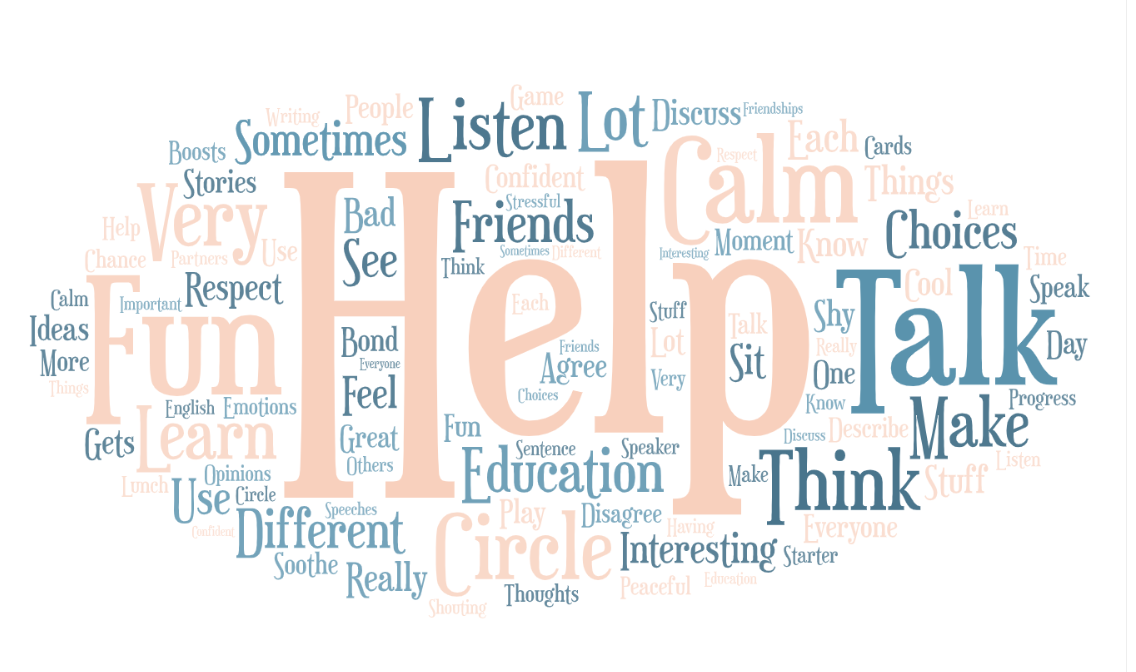
P4C pupil voice word cloud
Ways to keep everyone engaged and develop the community of enquiry
Reminders from six-year-olds about some of the benefits of P4C
Pupils feel that P4C helps them with everything from relationships to confidence to staying calm
Pupil voice about whole-class talk in Reading lessons
Pupil voice from younger children shows how they enjoy thinking and talking together
Pupils tell us why they think their peers don’t raise their hands
Pupils and teachers talk about how Philosophy for Children enhances teaching and learning
If you’re not yet doing P4C – this video will convince you. If you are, it will convince you to do more.
Children describe how P4C helps them listen to others and to express themselves
Examples of what staff decided to do differently, after reading pupil voice about talk in their classrooms.
More pupil voice about the idea of changing talk partners more often.
‘Hands up’ is a very common way of inviting pupil participation in lessons. However, research shows that typically only around 25% of the class raise their hands.


